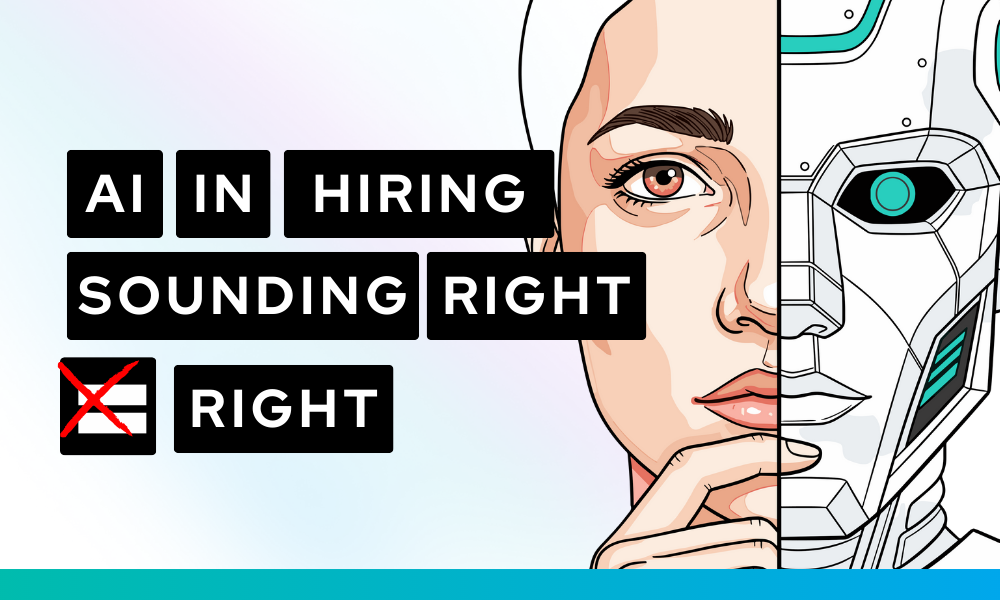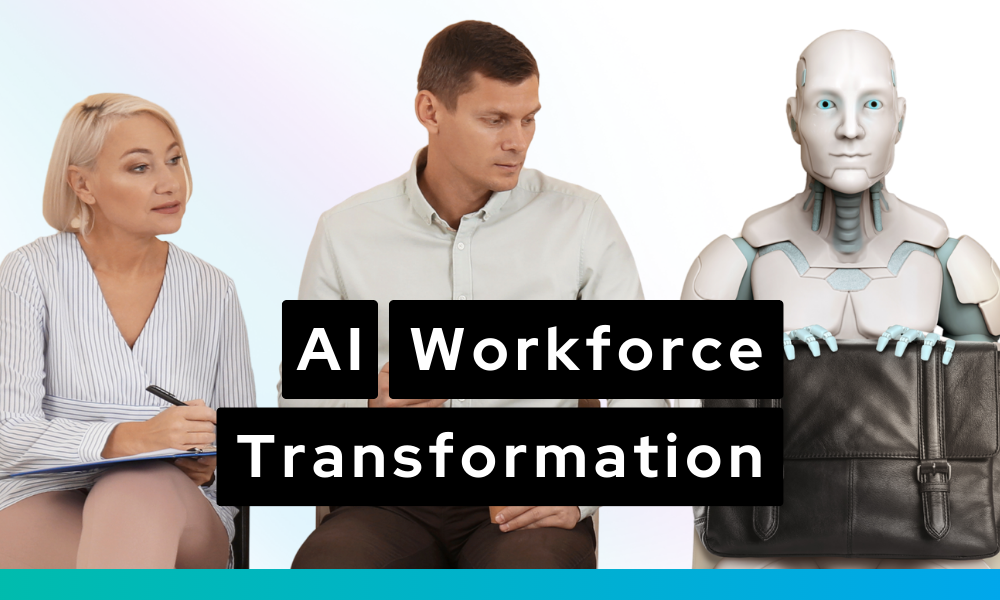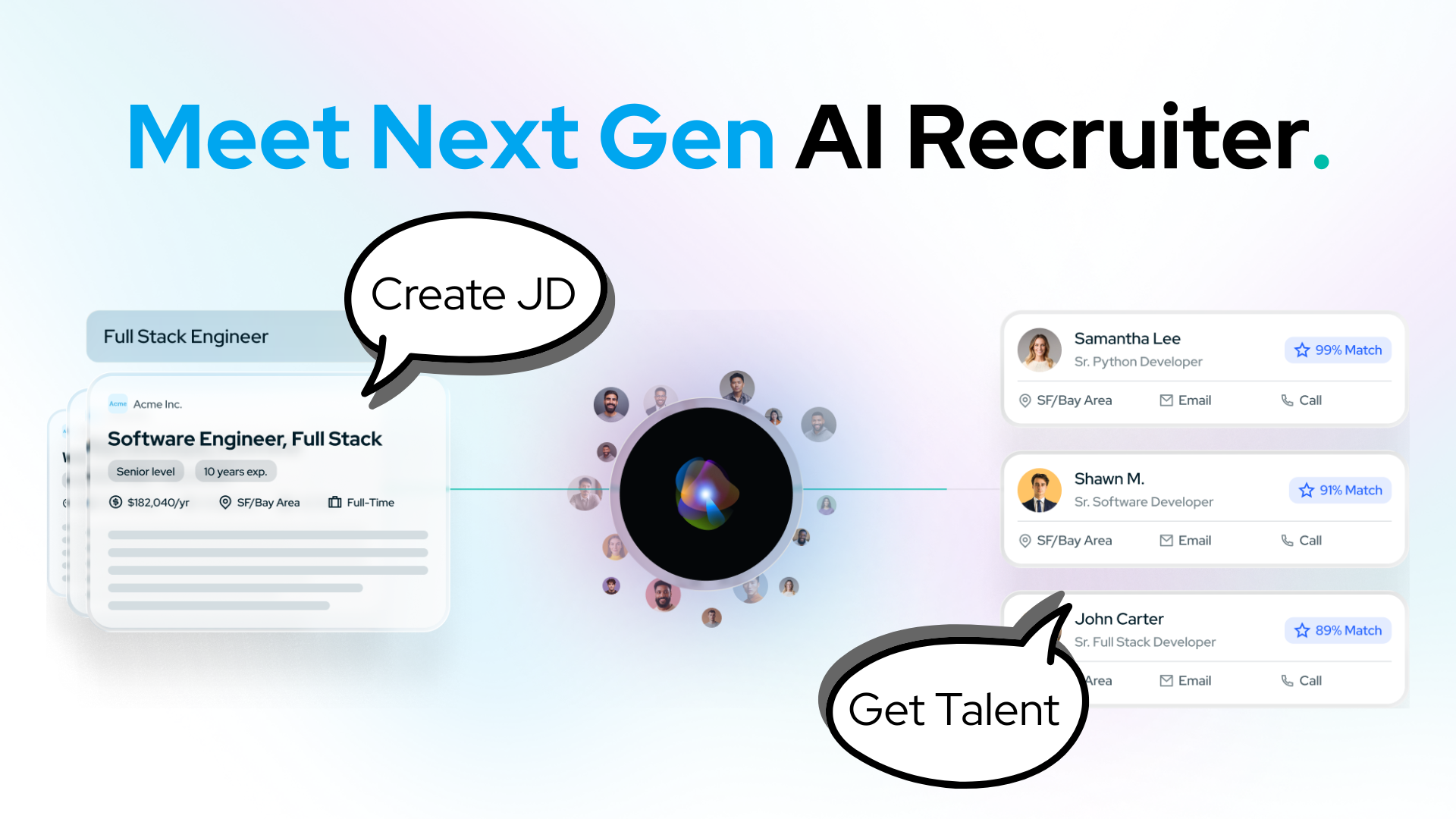
Make talent quality your leading analytic with skills-based hiring solution.

In the ever-evolving landscape of talent acquisition, the integration of Artificial Intelligence (AI) has become indispensable for recruiters aiming to stay ahead of the curve. As organizations increasingly turn to AI tools to streamline their hiring processes, recruiters must acquire essential skills to effectively leverage these technologies. This blog delves into the core competencies required for AI recruiters, emphasizing the significance of data analysis, understanding algorithms, and fostering a culture of continuous learning.
At the heart of AI recruitment lies data – a treasure trove of information that, when properly analyzed, can unveil patterns, trends, and valuable insights. AI recruiters must be adept at collecting, cleaning, and interpreting vast amounts of data to make informed decisions. Proficient data analysis skills enable recruiters to identify the most relevant attributes of potential candidates, predict future hiring needs, and optimize the recruitment process for efficiency and accuracy.
AI-powered recruitment tools operate on sophisticated algorithms that determine the relevancy of candidates, predict candidate success, and match profiles with job requirements. Recruiters need to have a fundamental understanding of these algorithms to ensure effective utilization of AI tools. This involves knowledge of how algorithms work, their limitations, and the ability to interpret algorithmic outputs to make informed decisions. A nuanced understanding of algorithms enables recruiters to fine-tune their searches, reduce bias, and enhance the overall quality of candidate recommendations.
In the rapidly evolving field of AI and recruitment technology, stagnation is not an option. Recruiters must cultivate a mindset of continuous learning to keep pace with the latest advancements. Staying updated on emerging AI technologies, industry trends, and best practices is crucial for AI recruiters to remain effective in their roles. Engaging in continuous learning opportunities, such as workshops, online courses, and industry conferences, empowers recruiters to harness the full potential of AI tools and contribute to the overall success of their organizations.
While AI streamlines many aspects of recruitment, the human touch remains irreplaceable. AI recruiters must balance the efficiency of technology with a human-centric approach. This involves effective communication, empathy, and understanding the unique qualities that make each candidate an individual. Additionally, ethical considerations play a pivotal role in AI recruitment, as biases embedded in algorithms can inadvertently perpetuate discrimination. AI recruiters need to be vigilant, continuously assessing and mitigating biases to ensure fair and inclusive hiring practices.
As AI becomes an integral part of the recruitment process, the skills required for AI recruiters continue to evolve. Proficient data analysis, understanding algorithms, and a commitment to continuous learning are at the core of these essential skills. By embracing these competencies, AI recruiters can navigate the dynamic landscape of talent acquisition with precision, efficiency, and a keen understanding of the human element in the recruitment process. The future of recruiting is undoubtedly intertwined with AI, and those equipped with the right skills will be at the forefront of shaping it.

AI can sound responsible while getting the logic wrong. Most conversations about AI in hiring fixate on bias, hallucinations, or compliance. That is where lawsuits land and where headlines cluster. Those risks are real. They are also incomplete. Often, the quieter the problem, the more dangerous it becomes. Many AI systems are better at sounding […]

TL;DR AI is no longer something people use. It’s doing the work. And Gen Z notices this first because they sit closest to the tasks AI replaces most quickly. That concern is not resistance. It is pattern recognition. AI Workforce transformation is happening. Fast! HR does not own AI. But when AI decisions are made […]

For decades, recruitment has looked the same. Recruiters still spend hours sourcing candidates, scheduling interviews, conducting screenings, and managing endless administrative work. The process is slow, inconsistent, and no longer sustainable in a highly competitive talent market. This is exactly the problem AI Recruiter was built to solve. What if hiring could run itself? The […]